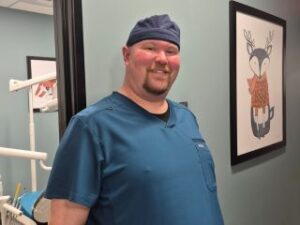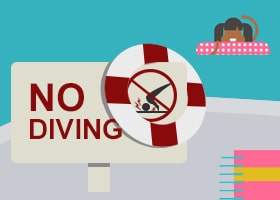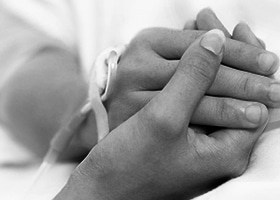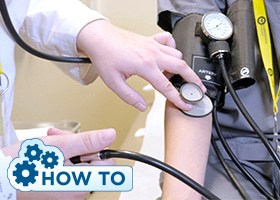 In what’s considered a long overdue policy change, it is now possible for consumers to return unused prescription medications to pharmacies.¹ The Drug Enforcement Administration announced that it would permit individuals to bring back drugs designated as controlled substances, such as opioid painkillers like OxyContin, stimulants like Adderall and depressants like Ativan. The policy, which will be put into effect in September, marks a grand shift in the world of pharmaceuticals and drug control, a change that pharmacy technology students should stay tuned in for to stay on the inside track of relevant, breaking news. “This is big news and long overdue,” Dr. G. Caleb Alexander, co-director of the Center for Drug Safety and Effectiveness at Johns Hopkins Bloomberg School of Public Health, told The New York Times.² “It’s baffling that it’s so easy to get a prescription for opioids and yet so difficult to dispose of these drugs safely.”
In what’s considered a long overdue policy change, it is now possible for consumers to return unused prescription medications to pharmacies.¹ The Drug Enforcement Administration announced that it would permit individuals to bring back drugs designated as controlled substances, such as opioid painkillers like OxyContin, stimulants like Adderall and depressants like Ativan. The policy, which will be put into effect in September, marks a grand shift in the world of pharmaceuticals and drug control, a change that pharmacy technology students should stay tuned in for to stay on the inside track of relevant, breaking news. “This is big news and long overdue,” Dr. G. Caleb Alexander, co-director of the Center for Drug Safety and Effectiveness at Johns Hopkins Bloomberg School of Public Health, told The New York Times.² “It’s baffling that it’s so easy to get a prescription for opioids and yet so difficult to dispose of these drugs safely.”
Drug abuse rates on the rise
The announcement comes at a time when prescription drug abuse is soaring. An estimated 70 percent of people who misuse prescription painkillers for the first time report obtaining them from friends or relatives.² The Centers for Disease Control and Prevention has even classified prescription drug abuse as an epidemic.³ From 1997 to 2007, the milligram-per-person use of prescription opioids in the U.S. jumped from 74 milligrams to 369 milligrams – representing an increase of 402 percent.⁴ “Prescription drug misuse and abuse is an urgent and growing threat to our nation and its citizens,” attorney general Eric Holder said in a video message on the Justice Department’s website.¹
Misuse and abuse
According to a 2013 report, about 6.5 million people ages 12 and older are current non-medical users of prescription drugs.² Some believe these substances are safer than illegal drugs because they are prescribed by a health care professional. “The sooner we get those unused medications out of the home and medicine cabinets, the better and safer it is for everyone,” Carmen A. Catizone, executive director of the National Association of Boards of Pharmacy, explained to The New York Times.² More than 7 out of 10 teenagers reported it is easy to get prescription drugs from their parents’ medicine cabinets, according to a 2014 Partnership for Drug-Free Kids study.² The big thing the new policy is hoping to accomplish is to simply take prescriptions out of circulation. In 2012, health care providers wrote 259 prescriptions for painkillers – which is enough for every American adult to have a bottle of pills. Until now, these drugs could not legally be returned to pharmacies. The Controlled Substances Act allowed patients only to dispose of the drugs themselves or to give them to law enforcement. Twice a year, citizens could anonymously return them to police departments during thousands of national “take back” events held by the D.E.A. In the last four years, these events withdrew 4.1 million pounds of prescription medications. Even so, a vast number of unused drugs remain out there, Dr. Nathaniel Katz, an assistant professor of anesthesia at Tufts University School of Medicine in Boston who studies opioid abuse, told The New York Times.²
Dangers of overdose
Drug overdose is a huge problem in the U.S. Every day, 113 Americans die as a result of drug overdose, and another 6,748 are treated in emergency departments for the misuse or abuse of drugs, according to the CDC.⁵ Holder said more than half of the 41,300 unintentional drug overdose deaths in the U.S. involved prescription drugs. What’s more, opioid pain relievers were involved in nearly 17,000 of those deaths.⁵
Consequences of ‘borrowing’
Those working as a certified medical assistant or certified pharmacy tech professional can talk to younger people to explain the consequences of “borrowing” a friend’s or family member’s prescription. First off, abusing medication can cause serious health problems like decreased cognitive function, changes in mood, changes in the menstrual cycle and slowed breathing. Central Nervous System (CNS) depressants such as sedatives and tranquilizers can trigger memory problems and lead to seizures. Using stimulants may cause abnormal heartbeat.⁷ Some of these drugs are highly addictive. When misused, the risk of addiction increases dramatically. Becoming addicted means that one’s body becomes physically dependent on the drug and one develops an uncontrollable craving for it. Individuals who are misusing likely have no idea about the right way to take the medication. Drugs react differently to different people, so it’s possible that a drug that works for a friend won’t work the same way for the one misusing – it could even cause reverse effects. With the DEA’s new policy, officials are hopeful the move will take drugs out of the wrong hands, as a method to prevent health problems, addiction and drug overdoses. ¹DEA.gov / Headquarters News Releases, 09/08/14. (2014, September 8). Retrieved September 11, 2014, from http://www.justice.gov/dea/divisions/hq/2014/hq090814.shtml ²Louis, C. (2014, September 8). D.E.A. to Allow Return of Unused Pills to Pharmacies. Retrieved September 11, 2014, from http://www.nytimes.com/2014/09/09/health/unused-pills-return-to-pharmacies.html ³Policy Impact: Prescription Painkiller Overdoses. (2013, July 2). Retrieved September 11, 2014, from http://www.cdc.gov/homeandrecreationalsafety/rxbrief/ ⁴Prescription Drug Abuse. (n.d.). Retrieved September 11, 2014, from https://www.whitehouse.gov/ondcp ⁵Johnson, K. (2014, September 8). Opioids are high on the list in Rx drug-return effort. Retrieved September 11, 2014, from http://www.usatoday.com/story/news/nation/2014/09/08/hospitals-pharmacies-to-accept-excess-prescription-pills/15275559/ ⁶(2014, July 3). Retrieved September 11, 2014, from http://www.cdc.gov/homeandrecreationalsafety/overdose/facts.html ⁷The Dangers of Misused Prescription Drugs – ULifeline. (n.d.). Retrieved September 11, 2014, from http://www.ulifeline.org/articles/390-the-dangers-of-misused-prescription-drugs



